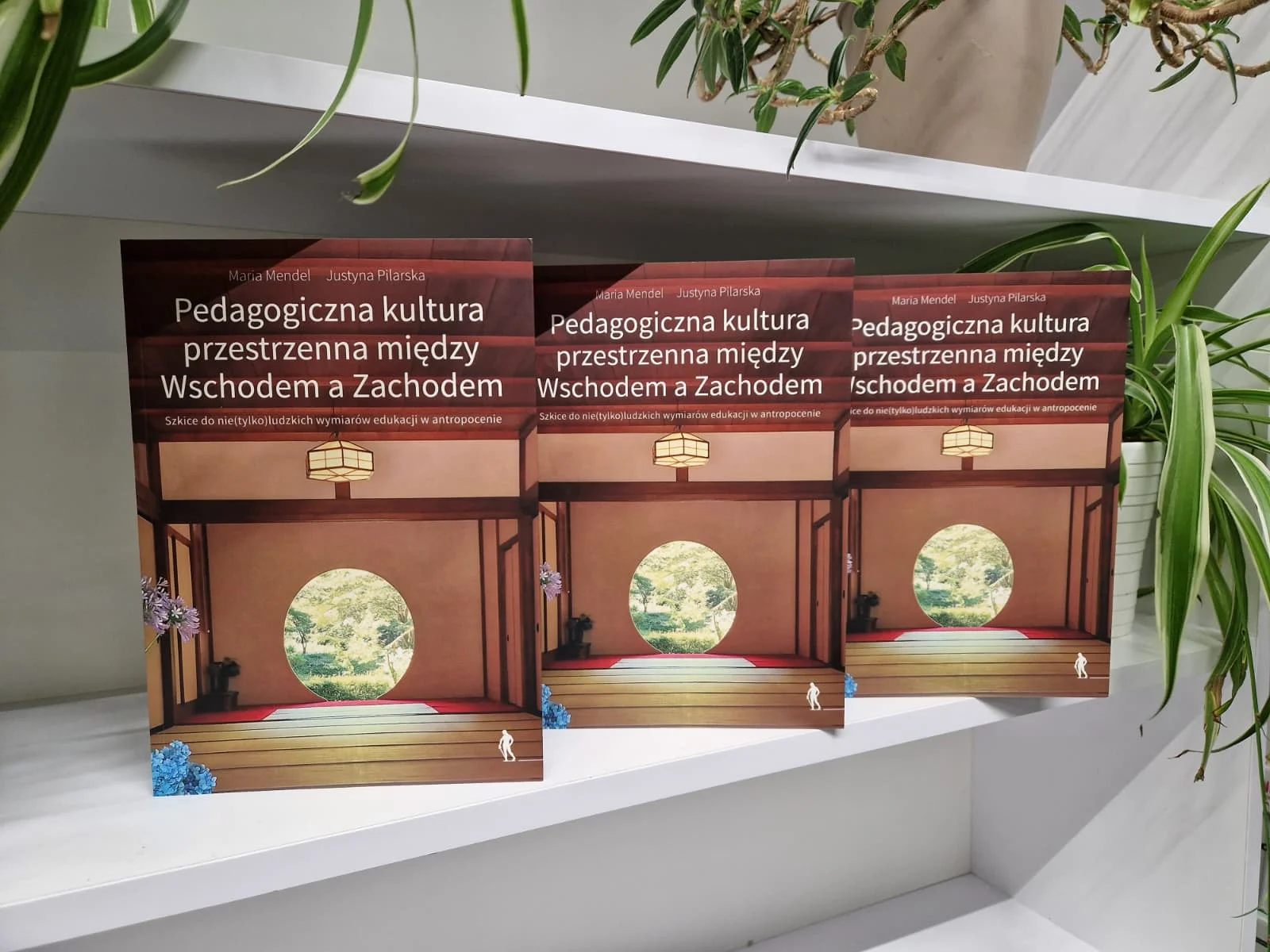
Premiere of the latest WUWr Book – Pedagogiczna kultura przestrzenna między Wschodem a Zachodem
On 28 November 2025, during the National Academic Conference DOBRY KLIMAT. Środowiska akademickie solidarnie na rzecz ekowspólności, the latest publication from the University of Wrocław Press will be launched. This significant event will bring together reflections on education in the Anthropocene with an interdisciplinary perspective on spatial culture.
The authors, dr hab. Justyna Pilarska from the Institute of Pedagogy at the University of Wrocław, a researcher of space conducting academic projects in Japan and Bosnia, and Professor Maria Mendel from the University of Gdańsk, will present for the first time their newest work: Pedagogiczna kultura przestrzenna między Wschodem a Zachodem. Szkice do nie(tylko)ludzkich wymiarów edukacji w antropocenie. During the conference, they will share their reflections on the book’s message in the context of the educational challenges of the Anthropocene.
The publication, issued by the University of Wrocław Press, advances spatially oriented reflection on the educational challenges posed by the crisis-ridden condition of the contemporary world, in particular the escalating climate catastrophe. It introduces the innovative concept of pedagogical spatial culture which as an interdisciplinary category contributes to spatial studies by seeking new conceptualisations of space in the Anthropocene. Analyses inspired by the philosophy of François Jullien, who proposes viewing cultural differences as “fissures” between East and West, lead the authors towards designing spatial solutions that transcend anthropocentric thinking and emphasise the shared world of humans and non-humans.
These solutions align with the idea of sustainable and regenerative development and with various dimensions of education and animation from intercultural education to environmental animation. The book develops the pedagogy of place, bringing together Eastern and Western perspectives on spatial culture and giving them new qualities, particularly relevant in the current conditions of crisis. The authors’ intention is for education in the Anthropocene to take the form of meaningful educational practices and to inspire better relationships within the shared co-vivendi space of humans and non-humans, the world of eco-commonality.
– The authors address a matter of great importance: how to inhabit the world differently, how to build it and within it, both literally and metaphorically, and how to live so that it becomes an inclusive, non-anthropocentric space. Particularly compelling is the intercultural perspective which, eliminating all forms of orientalism and exoticisation, allows for the development of an idea of active, evolving and educative space between what is Japanese and what is Western. It is an exciting possibility – says dr Joanna Bator.
Date of publication: 27.11.2025
Added by: EJK



